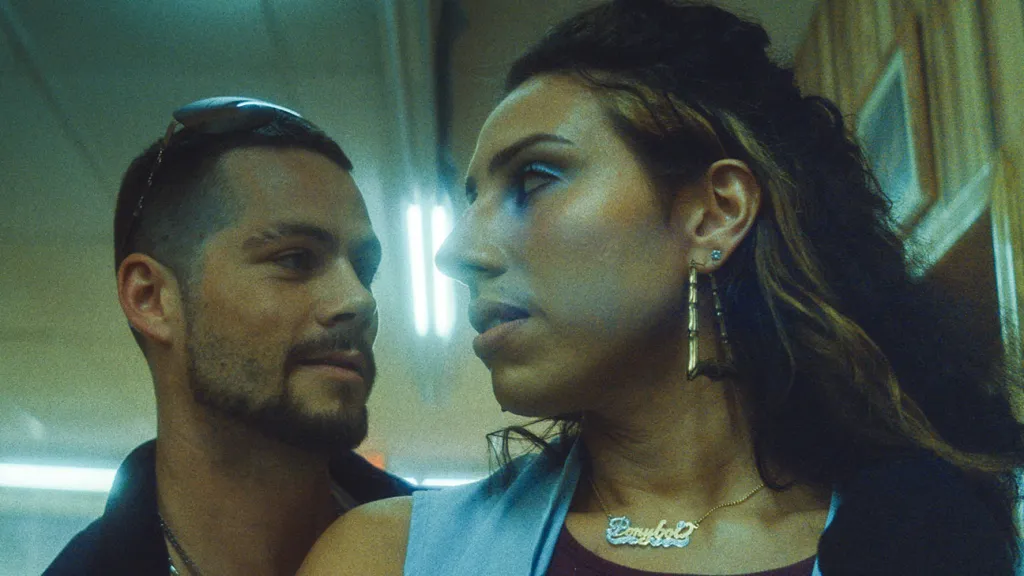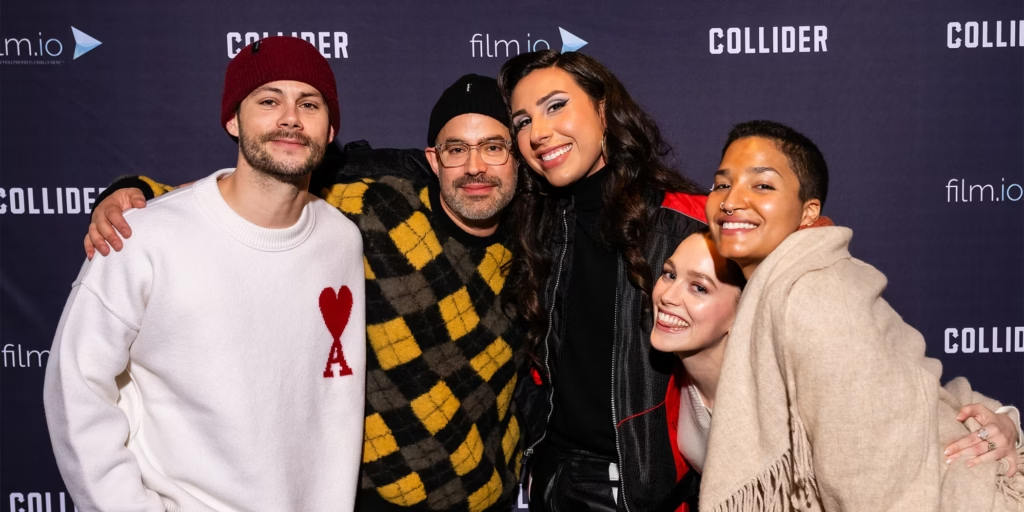
River Gallo: A TKS Conversation
River Gallo talks about creating a feature film – “Ponyboi” – that received rave reviews at the 2024 Sundance Film Festival, discusses what it’s like to emerge as one of the most forward-facing people in the intersex community, and describes how training and coaching with Terry Knickerbocker was so empowering.
TKS: Your feature film “Ponyboi” premiered at the 2024 Sundance Film Festival to rave reviews. What was that like for you?
River: It’s absolutely thrilling, on several levels, to have “Ponyboi,” which I wrote and star in, be so well received. First, it’s the culmination of a decade of work refining and evolving the film. Second, it’s a film about a queer, gender-expansive sex worker trying to understand the tension that his gender raised within his family, and you never know how that will be received. Third, this seems like the right time for this film and the conversation that it provokes.
TKS: How did the film evolve?
River: In one sense, it evolved from a 10-minute theatre piece that I created a decade ago in my sophomore year at NYU’s Tisch School of the Arts. That in turn became a 40-minute performance piece that was my senior thesis. It evolved further into a short film that was my thesis as a graduate student at the University of Southern California’s School of Cinematic Arts. That short film went to the TriBeCa Film Festival and then grew to become the feature. In another sense, it grew out of my own experience – out of the medical procedures that I endured as a child to construct my gender. That experience propelled me to explore the tensions around gender identity that are so prominent in America.

Credit: Sundance Institute
TKS: Did you first meet Terry Knickerbocker when you were a student at NYU?
River: Yes. I studied the Meisner technique with Terry in my first two years at NYU, and it was enormously important and empowering to me. Terry is so astute and able to cut through the bullshit. It was quite startling and even rattling to be seen so clearly. It was the first time that I felt understood for my talents and my potential.
When I entered NYU, I had suppressed my medical history as a weird thing that I wouldn’t express or explore in my art. But my training with Terry helped me embrace myself and all that I represent. Terry’s teaching of the Meisner technique enabled me to get to a place of high emotional energy and dive into a part of my psyche, tapping into something inside me that felt a little dangerous to touch. I realized that for my own healing – and my artistry – I needed to touch that place. I realized that to make art emotionally powerful one must be able to go there.
TKS: Is that why you turned to Terry Knickerbocker for coaching as you began filming “Ponyboi”?
River: No. I turned to Terry for a very practical reason, and it was the best decision I made. When we started shooting “Ponyboi” in New Jersey, I was informed that the first scene we would shoot was the last scene in the movie. Even though I had written the script and created the character that I was playing, the thought of filming the last scene first was unnerving. This was also my first starring role in a feature film, and there’s a big difference between living with a character as a writer and producing a compelling three-dimensional being. I needed coaching and called Terry. Within the first 15 minutes of talking with Terry, I was in tears unlocking the emotion that would drive the final scene.
If I hadn’t coached with Terry, I don’t think I would have gotten the rave reviews that I’ve gotten.
Terry framed my part in the final scene, for example, in a way that made me realize an almost spiritual dimension to what was happening. That experience already lived inside me. It was a deeply personal cathartic experience that I’d already had. Terry helped me realize that context.
TKS: Your artistry is now elevating you as a leading voice in the intersex community. How do you respond to that?
River: Art, advocacy, and activism all springboard off each other. They’re intrinsically linked. I think I was born at the right time to help lead this conversation, and I’m very interested to see how time will expand the conversation. The film stands on the backs of intersex activists and trans activists and others who have gone before me. It is also part of a longer and larger history of people who had been hidden. It’s piercing through the consciousness.
I’ve always seen myself as an outsider, so in that sense it’s difficult to receive the attention that I’m getting. But I’m eager to provoke a broader conversation in America about gender identity. So, my art really does inspire advocacy and, therefore, activism. I’m eager to embrace all three.

Credit: Collider.com